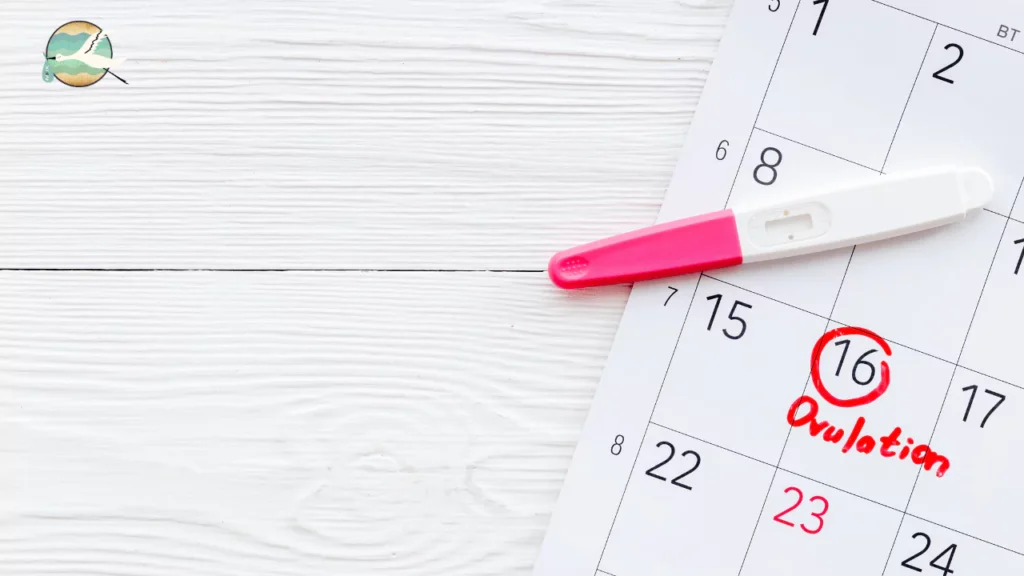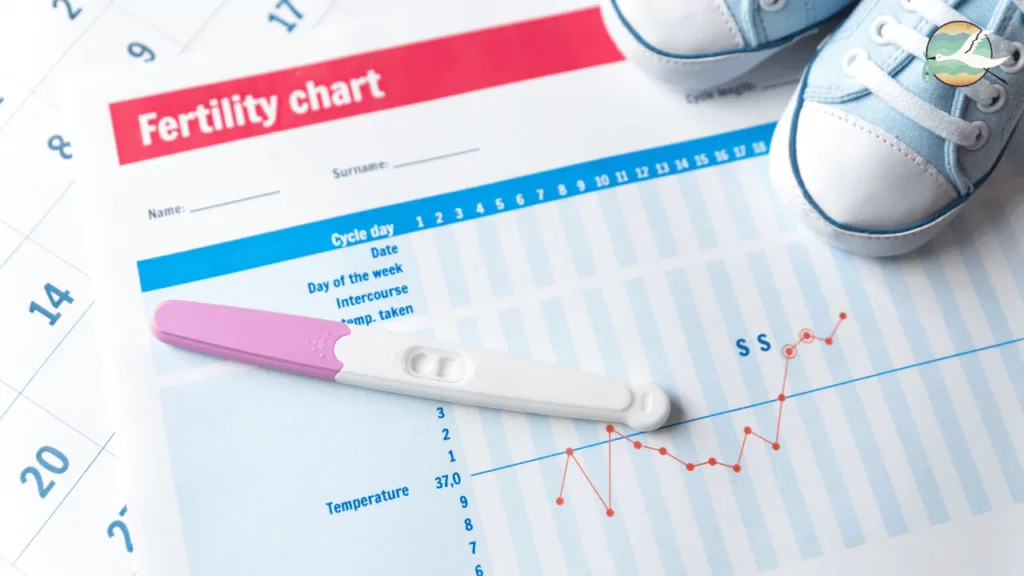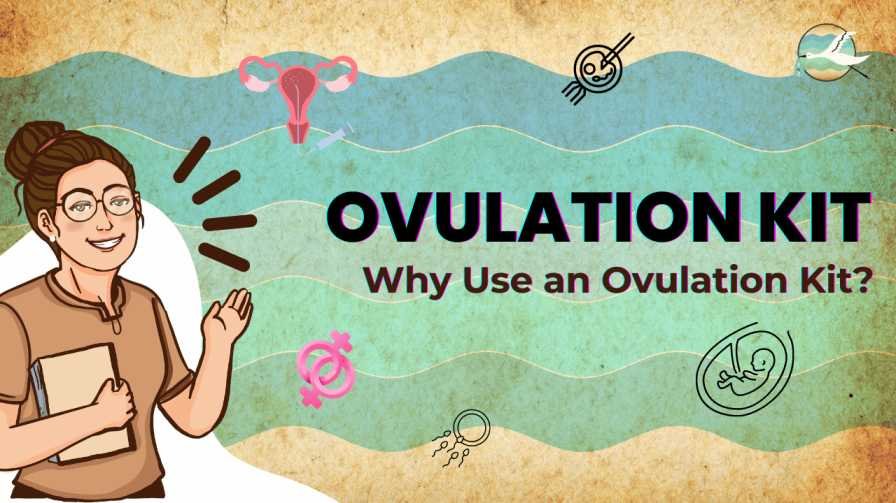Learn everything you need to know about ovulation kits, how they work, and how they can help you track your fertility. Discover the benefits, usage tips, and frequently asked questions about ovulation kits.
Are you planning to start a family or understand your menstrual cycle better? Tracking your ovulation is a crucial step in optimizing your chances of conceiving. One effective tool to assist you in this process is an ovulation kit. In this comprehensive guide, we will delve into the world of ovulation kits, exploring their purpose, how they work, and their benefits. Whether you’re a beginner or have some experience, this article will provide you with valuable insights into understanding and utilizing ovulation kits effectively.
Table of Contents
What is an Ovulation Kit?

A device used to identify the rise in luteinizing hormone (LH) levels in a woman’s urine is called an ovulation kit, also known as an ovulation predictor kit (OPK). This LH surge happens roughly 24 to 48 hours prior to ovulation, indicating the most fertile phase of a woman’s menstrual cycle. Test strips or sticks that are dipped into a urine sample to find LH are typically included in ovulation kits.
How Do Ovulation Kits Work?
The rise in LH levels, which is a crucial sign of impending ovulation, is what ovulation kits use to detect. The optimal period for conception is when the LH surge causes the release of a mature egg from the ovaries. In order to perform the test with a kit, you must collect a urine sample and adhere to the given instructions. Indicating whether or not the LH surge has occurred, the kit will show the results.
When Should You Start Using an Ovulation Kit?
The duration of your menstrual cycle will determine the best time to begin using the kit. It is generally advised to begin testing a few days before you anticipate ovulation. This would typically occur around day 10 for females with a typical 28-day cycle. For the best start date for using the kit, however, if your cycle is longer or irregular, it is best to speak with your doctor.
Signs of Ovulation

A mature egg is released from one of your ovaries during ovulation. Every month, approximately 14 days prior to the start of your period, it typically occurs. You may be ovulating if you experience any of the following symptoms:
Cervical mucus changes: Around the time of ovulation, your cervical mucus will change to a clear, slick, and stretchy consistency. This is because your cervical mucus thins and becomes more fluid as a result of the hormones released during ovulation. Sperm can now more easily pass through the cervix and enter the uterus as a result.
Basal body temperature (BBT) rise: As soon as you get out of bed in the morning, take your temperature, or BBT. It typically drops just prior to ovulation before rising slightly the following day. This is because the release of progesterone following ovulation causes a slight rise in body temperature.
Ovulation pain: Around the time of ovulation, some women experience mild to moderate pain in their pelvis or lower abdomen. This is referred to as mittelschmerz, and it is brought on by the ovary releasing the egg.
Increased sex drive: A few women report having more sex desire right before or right after ovulation. This is so that you can have more libido because of the hormones that are released during ovulation.
Breast tenderness: A few women report having tender breasts around ovulation. The increase in hormones that takes place at this time is what causes this.
Step-by-Step Guide on Using an Ovulation Kit
Kit use is a simple procedure that can be completed in the convenience of your own home. Here is a step-by-step instruction sheet to get you going:
- Make sure you are familiar with the kit’s instructions.
- Pick the appropriate day of your cycle to start testing.
- Gather a sample of urine in a sterile container.
- The test strip should be dipped or inserted into the urine sample for the allotted time.
- When the specified time has passed, remove the strip and read the results.
- In accordance with the guidelines given, interpret the results.
Why Use an Ovulation Kit?
Accurate Prediction: You can accurately determine your most fertile days by using ovulation kits, which offer a reliable method of predicting ovulation.
Optimized Conception: You can increase your chances of conception by scheduling sexual activity for when you are most fertile by using a kit to track your ovulation.
Irregular Cycles: Ovulation kits can give women with irregular menstrual cycles a clearer picture of their ovulation patterns, which is especially useful for them.
Time and Cost-Efficient: In comparison to other ovulation tracking techniques like ultrasound monitoring or blood tests, ovulation kits provide a more affordable option.

Understanding Your Menstrual Cycle
Knowing the basics of your menstrual cycle is essential before learning more about ovulation kits. The menstrual cycle is the monthly sequence of alterations that take place in a woman’s body in anticipation of potential pregnancy. Ovulation usually takes place in the middle of the cycle, which typically lasts 28 to 32 days.
Determining the Right Ovulation Kit
To ensure accurate results and a user-friendly experience, certain factors should be taken into account when choosing a kit. Here are some important things to think about:
Sensitivity: A high-sensitivity kit will allow you to spot even minute changes in LH levels.
Easy-to-Read Results: To make it simpler to understand the results, look for kits with clear result indicators, such as smiley faces or lines.
Number of Tests: Take into account the number of test strips or sticks offered in the kit to make sure there is enough to track ovulation over several cycles.
Digital vs. Traditional: Choose whether a traditional kit with lines or a digital kit that shows results digitally is more appealing to you.
Tips for Using an Ovulation Kit

Test Regularly: Test your urine frequently, ideally at the same time each day, to improve accuracy.
Follow Instructions: For accurate results, carefully read the directions and adhere to them.
Timing Matters: To ensure that you don’t miss the LH surge, perform the test a few days prior to your anticipated ovulation date.
Avoid Excessive Fluid Intake: If you consume too much water before the test, your urine may become diluted and the results may not be accurate.
Test Multiple Times: Repeat the test to verify the presence of the LH surge if you’re not sure about the outcome.
Track Other Fertility Signs: For a more thorough understanding of your cycle, combine the use of a kit with other fertility tracking techniques, such as keeping track of changes in cervical mucus or basal body temperature.
Common Misconceptions about Ovulation Kits
Ovulation Kits Guarantee Pregnancy: Ovulation kits only predict ovulation, which increases the likelihood of conception but does not ensure pregnancy.
One Size Fits All: Depending on the person, ovulation kits may or may not be effective. The accuracy of the results may be impacted by elements like hormone imbalances or specific medications.
Ovulation Always Occurs: Ovulation is a normal part of the menstrual cycle, but due to a variety of factors, some women may experience irregular ovulation or anovulation (lack of ovulation).
Stress and Ovulation: Stress may have an impact on ovulation, resulting in erratic cycles and decreasing the efficacy of ovulation detection kits. For best results, it’s crucial to control your stress levels.
Must Read: IVF Treatment Cost in India: A Comprehensive Guide 2023
Ovulation Kit FAQs
Q: How soon should I start using an ovulation kit?
A: On days 10 to 12 of a 28-day menstrual cycle, which is a few days before your anticipated ovulation date, it is advised to start using a kit.
Q: Can medications affect the accuracy of ovulation kit results?
A: Yes, some drugs, such as hormonal contraceptives or fertility drugs, can affect how accurate the results of ovulation kits are. If you’re unsure, talk to your healthcare provider.
Q: Can an ovulation kit be used as a form of contraception?
A: The answer is no, ovulation kits shouldn’t be used as a form of birth control. They are made to support those who are trying to conceive in tracking ovulation.
Q: How long does the LH surge last?
A: The LH surge typically lasts between 24 and 48 hours. For the greatest chance of conception, it is essential to schedule sex during this fertile window.
Q: Are ovulation kits suitable for women with irregular cycles?
A: Yes, because they give a more precise indication of ovulation patterns, ovulation kits are especially beneficial for women with irregular cycles.
Q: Can stress affect ovulation kit results?
A: Yes, stress may affect ovulation and cause irregular cycles. For more accurate results, it is crucial to control your stress levels.
Conclusion
The first steps to achieving your fertility goals are to understand your menstrual cycle and recognize your fertile days. The best chance of conceiving is provided by a kit, which provides you with accurate knowledge about your ovulation. You can begin your fertility journey with confidence and gain control of your reproductive health by following the instructions provided in this article, selecting the best kit, and monitoring your results over time.
Remember that while ovulation kits are a useful tool, you should always seek medical advice if you are having problems getting pregnant or have any concerns. Depending on the specifics of your case, your healthcare provider can offer you personalized advice and support.
Now go ahead and harness the power of a kit to increase your chances of becoming pregnant and start your wonderful journey to parenthood!





[…] Must Read: Ovulation Kit: A Comprehensive Guide to Tracking Your Fertility 2023 […]
[…] fertile days and increase your chances of getting pregnant. To exactly anticipate ovulation, use ovulation predictor kits or smartphone […]
[…] In the female reproductive cycle, the follicular phase is characterized by the growth and development of follicles in the ovaries. Follicles are tiny sacs that contain immature eggs (oocytes). During the follicular phase, a select group of follicles begins to grow and mature. The dominant follicle, which is the largest and most mature follicle, will eventually release an egg during ovulation. […]
[…] Ovulation prediction kits: These kits detect luteinizing hormone (LH) levels in your urine. LH levels increase immediately before ovulation, therefore an increase in LH levels suggests that you are about to ovulate. […]